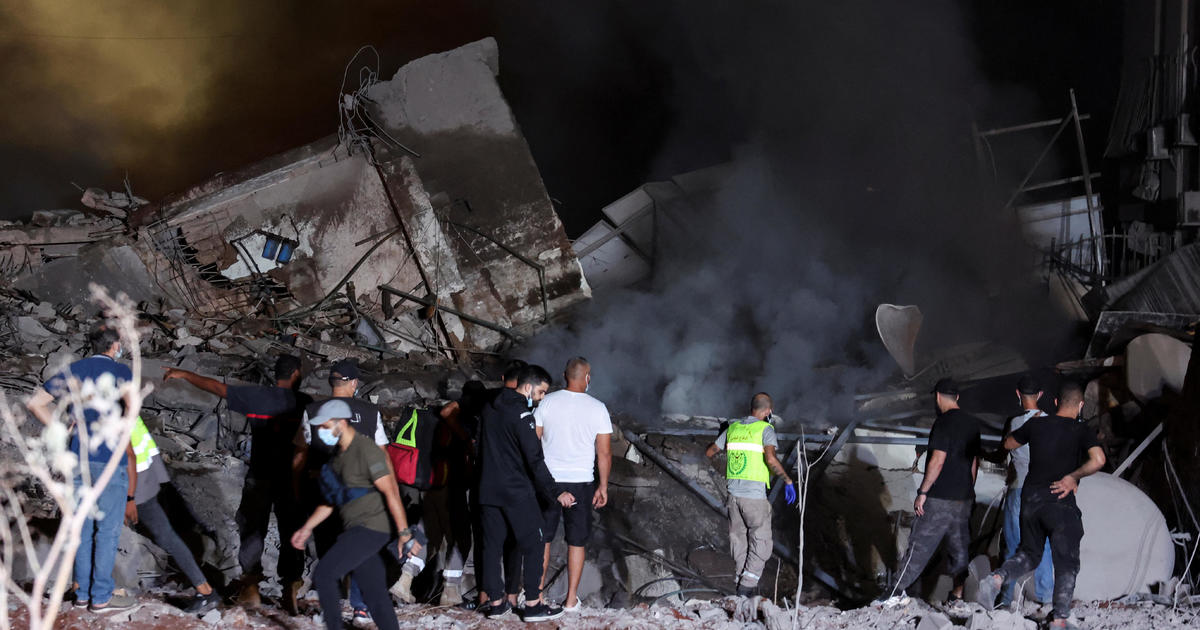Israel launched a series of massive airstrikes on Friday targeting Hezbollah’s headquarters in Beirut, Lebanon, in the biggest blasts to hit the Lebanese capital in the past year. The strikes leveled multiple high-rise apartment buildings, killing at least six people and wounding 91. The Israeli military claimed the strikes were aimed at eliminating Hezbollah’s senior leadership, including possibly Hassan Nasrallah, the group’s leader. While it is unclear if Nasrallah was killed, the strikes are likely to have a significant impact on Hezbollah’s ability to operate and will likely be a turning point in the conflict.
Israeli Military Strikes on Hezbollah Headquarters in Beirut
The strikes, which took place on Friday evening, targeted a heavily guarded section of Beirut’s Dahiyeh suburbs, known as Hezbollah’s “security quarters.” The Israeli military said the strikes were aimed at degrading Hezbollah’s military capabilities and preventing the group from launching attacks on Israel. The Israeli military sought to minimize civilian casualties by conducting the strikes in the daytime when most residents would be away from home.
Impact on Hezbollah
The extent of the damage caused by the strikes is still being assessed. However, Israeli officials said they believe the strikes have dealt a significant blow to Hezbollah’s leadership and its ability to operate. The strikes also raised concerns about the future of the conflict, as the potential for escalation and a full-fledged war between Israel and Hezbollah continues to grow.
Response to the Strikes
Hezbollah has not yet officially commented on the strikes, but its supporters and officials have been defiant. They vow to continue fighting Israel and to support Palestinians in Gaza. The international community expressed concern over the strikes, with the U.S. government calling on Israel to exercise restraint and seeking a ceasefire.
The Growing Conflict Between Israel and Hezbollah
The current conflict between Israel and Hezbollah is a significant escalation of a decades-old rivalry. It began following Hamas’ attack on Israel in October 2023. Hezbollah fired rockets into Israel in support of Hamas, triggering a series of retaliatory strikes by Israel.
Escalation of the Conflict
The strikes in Beirut come as Israel has been ramping up its attacks on Hezbollah in recent days, carrying out hundreds of airstrikes on Lebanon. This escalation comes as Israeli leaders vowed to do everything in their power to end the firing of rockets from Lebanon and Gaza into Israel. Israel also moved thousands of troops toward the border in preparation for a possible ground invasion.
Implications for the Future
The outcome of the conflict between Israel and Hezbollah is still unclear. There is potential for a full-scale war between the two countries, which could have devastating consequences for both sides and for the region. The conflict has already caused widespread suffering and displacement in Lebanon and Gaza, with thousands of civilians being killed or injured. The strikes on Hezbollah’s headquarters in Beirut are a major development in the conflict, which is likely to continue in the coming weeks and months.
Takeaways
The strikes on Hezbollah’s headquarters in Beirut highlight the growing conflict between Israel and Hezbollah. This conflict is a potential for a devastating regional war and is causing immense suffering for civilians on both sides. The escalation of violence in recent days underscores the need for a diplomatic solution to this conflict. This conflict raises concerns about the future of the Middle East, which has been rocked by years of conflict and instability.




